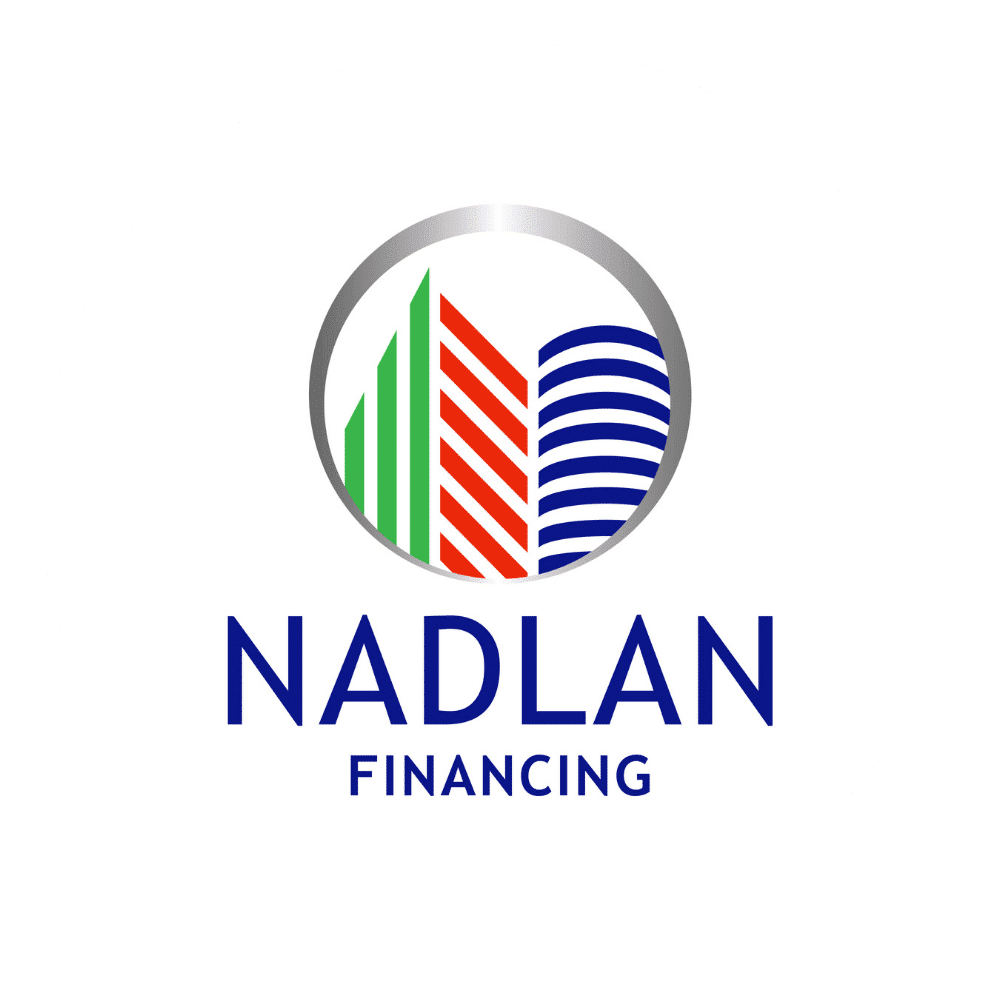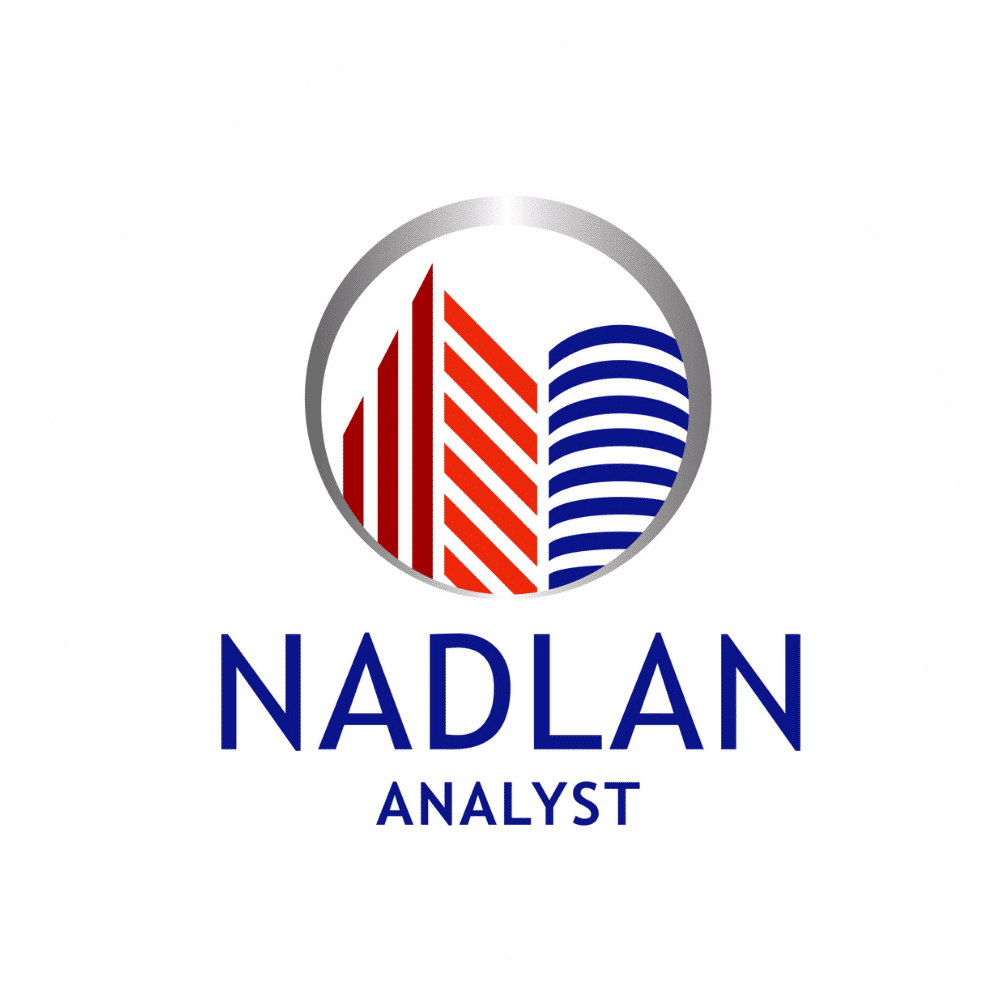US Real Estate Investment Tips

US Real Estate Investment Tips
Tips - Share with us tips that will help you in the field of real estate investing in the USA
The original responses to the post can be read at the bottom of the current post page on the site or in the link to a post on Facebook and of course you are invited to join the discussion
- An interesting podcast I heard today - do you know the global ranking of how easy it is to do business in different countries? That is, how much bureaucracy and how long does it take, for example, to open a company, issue a business license, etc. USA Place 8. Guess where Israel is.
- http://www.doingbusiness.org/rankings
- Really an important tip for everyone .. llc listed in registered agent details. Please note that you are receiving information, mail and updates on a regular basis.
Recommended Ron's tutorials for Grand in one of the podcasts. Recommends a technique of rent to own. This is how the tenant pays for the repairs to the property, and we actually sell him a loan of about 11 percent interest. This is the interest rate inherent in comparing his monthly payments to a rental loan, say $ 800 a month. The developers who recommended work in St. Louis. Buy homes in mls and market to a large niche of buyers that many do not turn to - those who do not get a loan from the bank but would like to buy a home. The developers earn several times because as stated the repairs the tenant makes because it is a property he is buying, and pays the rent as a loan to buy the property.
- The entrepreneurs claim there is a huge demand for the system. Targeted marketers on Facebook for people who are about to move home within a mile radius around the property. The tenant pays the same rent only at the end of his property, so he does not feel that the interest is on her back.
- household income VS family income
- A household consistors of all people who occupy a housing unit regardless of relationship. A household may consist of a person living alone or multiple unrelated individuals or families living together. Median family income is typically higher than median household income because of the composition of households.
- First House 3.5 FHA - Credit above 620 but has PMI or 5 percent conventional - Credit 680 - PMI until there is 20 percent equity. House Monday to Wednesday Most banks 20 percent to single 25 to multi. House Fifth to Tenth Most banks 25 percent for everything. Usually the interest rate is determined by the percentage of the down - if you put 25 the interest rate is better. I have come across a number of banks that also for a single single property agree 15 down but this is not common. There are thousands of banks in the US so there are always alternatives.
- In 2007 there were realities in Bat Yam. Apartments for NIS 400. I bought there in the second-third class of the course, and sold after a year for double the price by bidding on the apartment. I bought with the profit in Olga by the sea two apartments - all the areas today in Olga in evacuation construction and many have already been sealed, there is planning for hotels, promenade, high-tech park and more. Takes time but progresses. The apartments there have tripled since 2010 but there is still a reality of apartments for less than a million shekels.
- Recommend watching the American movie: thive
In about half the movie, 50 has an explanation of how the film's creator believes that banks and the government are cooperating in creating economic crises and enslaving the public to their advantage. There are also thick clues to the new base of anti-Semitism in America, such as the old anti-Semitism in Europe pointing a finger at the Jews (Rothschilds).
At the height of modesty, allow me to raise the fear that may be attached to Jewish investors who know how to take advantage of the crises. According to the chat here, the veterans are careful to follow American laws and are aware of the importance of adapting to the American way, but unfortunately, prejudices and behavior of past Israeli traders who "stung" members of this group, bring a bad name to everyone and reinforce anti-Semitic tendencies.
Because according to the film, the artificial growth trend, which includes accelerated consumption and more jobs, is characterized by low interest rates and loans, and the closing trend of the celebration is characterized by rising interest rates, I do not understand this at all. This is called in the movie "Rolling the fishing line" which is explained in the movie in 105-110 minutes, is the rise in interest rates a sign of the beginning of a new crisis? Or maybe it has a different meaning?
I would love to learn. - Sorry Movie Name: Thrive
Appears free on youtube - Minute 1: 08: 07 On screen: Give me control over nation`s currency
and I care not
I do not write this message - it was copied from the WhatsApp chat - in translation: "Give me control of the country's currency and I do not care who sets the laws"
The figure on the screen is that of the Baron Meir Amschel Rothschild.
In the background there is no vocal interpretation, but the message is clear: The Jew is the state's leech, a little like the message from a merchant in Venice. There is a clear accusation here that a Jew does not care about America only from the money he makes at the expense of its citizens.
I would be happy to be wrong - An antisemitic person made a movie and put it on YouTube. That does not make the film historically correct. Missing antisemitic? There are also Holocaust deniers, conspiracies about the twins, and so on. Like not everything on the internet makes it right. There is a lot of fake news. I have not seen the film yet - I will watch the opportunity and say what I think. Of course there are rogue Israelis here. Not missing. Like those who promise a return and embody it in the price of the property for 3 years, or take advantage of the innocence of Americans to buy cheap houses from them and flip them - many of the flip methods are in the gray area. Someone is going to lose his house and the investor presents it as a help that all he cares about is buying the house for half price - whoever is righteous offers a market price. No one for a half-year market analyst that is a philanthropist. There are also fraudsters in carts who employ illegal workers and so on. That is why it is advisable to be educated alone, go to courses etc and rely on self testing. Anyone looking for an easy and passive life without checking is engaged in gambling. Regarding the interest rate - so far they have not raised the interest rate (only once) because the economy is not yet strong enough. Employment data, etc. Once the interest rate is raised it means that the administration believes that the economy is strong and mature enough to do so. On the other hand it will keep buyers away from the dream of buying a home and less construction starts because financing will become more expensive. For those who have already bought long-term homes it is good in terms of rents that there will be more tenants, but prices have gone down because there will be fewer buyers. For those who buy with cash it is also good - prices have dropped. For those looking to buy funded the window of opportunity is reduced because for example now at 5 percent interest I need properties that give 12 percent to be profitable and pay all the costs and leave cash flow. This interest rate is still very low historically. Investors also bought assets at interest rates of ten percent or more during the inflation periods of the 30s. For me to buy as much as possible now with financing and set the interest rate to XNUMX years. In ten years when interest rates jump these mortgages will be much rarer and more equal. Regarding anti-Semitism - since Trump came to power all sorts of neo-Nazi organizations have started to look up and see him as their leader and there have been cases of desecration of graves etc.
- These podcasts are excellent. I listen every day and learn a lot - at least two hours a day on the way to work and back. The updates are usually on real estate news in the US, and interviews with real estate people about their successes, failures and strategies etc .. as well as analyzes on recommended investment areas.
- Anchor in the seller's debt contract because of tax of previous years. very important
- An excellent podcast on the science and math behind the flips. According to the podcast, at least 10-15 percent of the net selling price should be earned. For example in a sale of 300,000, a profit of 30,000 to 45,000. For every dollar of renovation we invest, we want to earn at least half a dollar. That is, if we bought at 200,000, and renovated at 50,000 we want to earn at least 25,000 after commissions - otherwise the risk is not worth it. Renovation that does not exceed twice the profit. Do not invest a hundred thousand dollars to earn only 25000. The host of the podcast is a realtor and investor in real estate who has sold homes over a billion dollars. First place in the history of Claire Williams and other companies. His record is a sale of 14 homes a day. Lots of great information from 30 years of experience.
- Flipping Homes from A to Z: A Step-by-Step Guide to Smart Real Estate Investing with William Bronchick. p
odcast
- Earn fast profits by flipping homes with a system designed to maximize returns while minimizing r…. Sent from Podcast Republic.
- http://unadlan.co.il/קרן-ריט/
- exactly. I try to focus on the things I have control over. I can renovate, swap, rent, refinance, etc. My controlling shares are minimal and a bad thing. I went through crises in stocks and it is not for me then definitely lived and forgot.
- You have to remember that the price of REIT funds is seen every day
And sometimes it's hard… .Bandlan does not check the price every day
You have to understand that. A lot of psychology - I have traded in the capital market for years, and I can tell you that a big advantage for me in the real estate market is that you can reach 97 percent if not 100 percent testing yourself - it all depends on your determination, knowledge and experience you have acquired and of course while investing in the subject. If you bring in a tenant who has not paid for 6 months, this is something you can avoid - I bring in tenants in New York with credit over 800, who pay me 3 months security and 3 months in advance and my contract is 20 pages with every little detail. I do property inspections every 3 months, and any damage done to them is deducted from the deposit because there is an inspection I make in writing, photos and video. In the stock market, as much as I did not research Teva, Amazon, Apple, etc. I could not have known that Steve Gobbs was going to die, that there would be an exchange of roles in Teva and a patent on the problematic Copaxone, etc. This is also an advantage for me in direct investment - when I bought an investment apartment in Bat Yam in 2007 before people discovered Bat Yam, I went for half an hour every day after work to see 3-4 apartments, I put everything in Excel according to air direction parameters, cost per meter, distribution potential, Proximity to the sea etc and in the end I arrived at the perfect property that I sold after a year at 100 percent profit. I worked on it very hard but I was able to find out every detail myself - I went to the municipality to build what the construction plans are for the area, any free space I made sure they would not build a building in front of the property etc. In stocks it is much harder even if you are an analyst who deals with it all day - unless you have inside information then it is no longer legal.
- htt
 ps://gyazo.com/eedbb190916d128af0506feac26b6a36
ps://gyazo.com/eedbb190916d128af0506feac26b6a36
- https://gyazo.com/05791dd1a0bebbbe4e2194667a0f9c9d


- https://gyazo.com/76e6171084a422c7539967506e4a5f64
- There is no other asset I know that you can put only 3.5 percent in and enjoy a one hundred percent increase in its value. Kioski said he went to the bank and said he was willing to invest in the bank’s shares but put ten percent and get one hundred percent. The bank apparently did not even agree that it was an investment in the shares of the same bank. Only in real estate the bank has the security to leverage because it knows it is real estate - a real asset and not a security that can lose all its value.
- Stocks are paper. Anyone who invested in 2000 or 2007 lost 90 percent. Some of the funds you invested in simply disappeared. On the other hand, a building you bought, unless it is a disaster, will not go away. Even if the market has dropped in price
- As they write, another disadvantage is that, as in stocks, a significant portion of the value can be lost while collapsing while the block of real estate stays in place and maximally waits until the market rises. But it can be a solution for people who want to quickly enter a particular market, especially if there are hundreds of specific funds, and at a lower risk because there is a large spread.
- http://www.hon.co.il/השקעה-בקרנות-ריט-יתרונות-וחסרונות/
- The advantage is the risk dispersal. The disadvantage to me in REITs is that it is not usually possible to choose the area and type of investment, the money cannot be leveraged and there is no value added.
- In my humble opinion from a general examination of the REIT in Israel, the risk is not dangerous. It is invested in physical assets in the form of a yielding real estate.
Its ups and downs are affected by 3 main things:
1. The commercial and employment real estate market in Israel
2. Bank of Israel interest rate changes (due to leverage)
Acquisition and realization of assets. - Please note that there is another REIT Foundation in Israel on the same REIT 1 concept and its name: Sela Capital. A young but yielding fund
- Do not invest in a natural disaster area
- To say such a thing does not justify what you say about financial investment. It's like telling you that you don't know which company lies in its financial statements or which crisis in the trading machines destroys a company's paper value
- Relative to real estate in the US it is zero risk, the company takes care to spread your investment over a lot of small loans so that even if one falls the yield will go down a bit. Real estate has a current return if you do not fall for a problematic tenant… There has been an increase in value so far who guarantees that it will continue?… Buying a property below the market price is difficult even for professionals like Lior and Danny so it is not obvious and certainly not passive…
- Everyone here is talking about the analysis that revolves around the single family but ignores the possibility of investing in syndication in multi-asset properties in investor-friendly states (Florida, Georgia, Texas, Carolina) I would love to hear some opinions on the subject
- I would not compare the issue to investing on the stock exchange, but there are undoubtedly risks and opportunities here
I would not go in if there is no 100% commitment to the process, and investing in real estate is like running a long marathon, need patience, patience, composure and hard work…
Anyone who knows himself and might not sleep well at night because he heard that he went to an air conditioner in the apartment and expected a substantial expense, is not safe for him. Anyone who comes under pressure because a tenant does not pay and does not evacuate (and for two months an evacuation process is underway, not sure it is for him)
Anyone unwilling to go deeper, get into numbers and manage risks wisely - not sure it's for him.
Anyone who thinks he will not have the power to compare insurance and payments once a year. Dealing with the bureaucracy of replacing an insurance company, reading agreements and negotiating them - not sure it suits him.
I'm with 6 single family homes in the US and hope to continue ……
Successfully! - An interesting podcast about the horror stories of an investor who invested in the wrong neighborhood - this is not to scare those who have not yet invested, but to sharpen the importance of analyzing areas and homework before investing. Briefly he began to realize that there was a problem with the first murder in one of the apartments in the complex he had bought.
- How to Lose Money by Choosing the Wrong Location with Pat Podcast
- .
- at Hiban has been heavily involved i…. Sent from Podcast Republic.
- y Yes this is the survey I know too. Everyone does a survey according to what they deserve. What I sent published BNH

- My specific thing is that the capital I use is from the cash out of assets that I bought a few years ago for cash and refurbished. In the meantime, they have doubled. I enjoyed a nice net cash flow but now I will start paying them a mortgage. I can basically take the money and do flips or renovations again, not deceive, the matter that for six months I will pay the financing costs. You have to think about it and it all depends on what I find. On the other hand, the money can be put straight into a yielding asset with a positive cash flow that will cover the financing expenses of the oct and the new asset and thus reduce the risk. If anyone has an interesting flip and needs funding completed, I'm ready to consider.
- For returns above 12 percent - it all of course depends on the region. Doron did an excellent surgery upstairs and I usually try to do something similar. There are areas with a 20 percent return but I do not approach them. The yield does not actually read when the tenant does not pay, when it needs to be taken out or repaired or all the damage he has done or brought appliances in place of those he stole.
- Agree with you but do not forget that you have a whole set that performs full time flips. Your risk is lower because that's what you do every day - your costs are different.
- https://gyazo.com/931769bdc2dca53462fb5b4f4
 32eba51
32eba51
- Properties built in 1944 is a problematic standard with electrical piping… Check with inspector. A few years ago a renovation cost that will not buy a ruin…
Rent is also not high…
I'm any house that has no potential for rent over 1000 hard to get meat out…
Any repair will swallow half a year or more of net… Reduce tax and management fees… Hard to signal profit - I try to buy the house at a significantly lower price than the market by offering an instant cash payment
- The podcasts are on itunes or Stitzers
- Tip: Treat dignitaries who are in the property with respect and try to make them feel good and belong
For example: If you have to purchase an electrical product, I always ask the management company to ask the tenants what device they prefer (within the budget I set) so that at no additional cost you made them feel good and they will remember it at the end of the year with the renewal of the contract (and sometimes a request for a price increase). They will feel more of a sense of belonging.
Once they also asked for a refrigerator with the option of a kiosk that takes out ice cubes, a negligible difference and they get a good feeling…… - Tip: A significant assessment of the amount of rent to examine the feasibility of a "buy and hold" transaction Here are my tools for examining the amount of rent:
1. Homes for rent in the area (including how long they are famous)
2. Information from a local rental company (they will eventually need to rent the property)
3. Visit https://www.rentometer.com/
4. If you work with an agent it can take out a report from the MLS system showing the rent level and how long it took to rent the house (the average will help understand)
A combination of the information can give a reasonable estimate of the rental height ranges in the area
Best of luck!
- An interesting podcast I heard today talked about the pros and cons of the US real estate market versus Canada - while in Canada the class differences are very small in almost all regions, so in an entire city per capita income can vary by 30 Canadian dollars plus or minus from one to the other, in the US we Know that one block can be with houses in the millions and a block next to it is a block of poverty. The advantage it gives us is part of the three types of asset appreciation - forced value appreciation of the real estate market - in addition to the cyclonic rise of the real estate market over which we have no control, and inflation. This means that a wealthy real estate entrepreneur can force the market to rise by actually changing the reality of the neighborhood by investing in the "wrong" side of the neighborhood's contour, as long as the divider between the good and the bad is not a physical but a psychological divider - for example Harlem in Manhattan - there is no road or river that crosses between the areas, only a psychological buffer, so an entrepreneur who buys a row of buildings across the line, can change the reality of the neighborhood - and we see that happen in practice. A sample group of investors buying in Jacksonville, could realize this strategy by massively buying dozens of affordable homes in an area close to the good areas, renovating them all and changing the reality of the entire neighborhood and raising the value of homes. We see this happening in large investment groups that work in the western area of Jacksonville and are developing areas from scratch. In Canada it is more difficult to do this (except Toronto) because the areas are very homogeneous. The developer in the podcast built a number of buildings near a trendy area that has no comps for the type of buildings he built, so the comps came half a mile from the expensive area, and so the buildings he built were given high value by the bank. Another strategy is always in new construction not to exceed in expenses more than 70 percent the value of the property after construction, ie if the intended value is a million, should be built no more than 700 thousand - the idea is that after construction let's say investors invest in syndication, turn to the bank for financing, bank Finances 70 percent, thus effectively spending all the money invested back to investors who receive the fund money, and the asset remains as a free cash flow asset.
- Tip: Don't fall in love with homes that inspect.
Sometimes we look at deals so deeply that we start to fall in love with the house, suddenly "give up" on principles, suddenly a little crime is not terrible, then what about there is a flood of houses for rent in the area, and all sorts of red lights no longer bother.
It is important to stop and make sure that we do not "fall in love at home" and examine the deal as objectively as possible.
It is advisable to give another eye and another objective opinion an opinion - before final closing the deal.
Successfully…. - Mortgage Tip - Once you have bought a first home for residence, you can define another home as a secondary home, and receive interest on it as that of a first home and not an investment. Not bad 🙂


































The Kendall Group
Residential Real Estate Group
Please everyone follow this link.
#realestate#Developer#Construction#consultancy
#Engineers
Link This: https://www.instagram.com/thekendallgroup.ig/
https://gyazo.com/05791dd1a0bebbbe4e2194667a0f9c9d
https://gyazo.com/eedbb190916d128af0506feac26b6a36
I have traded in the capital market for years, and I can tell you that a big advantage for me in the real estate market is that you can reach 97 percent if not 100 percent testing yourself - it all depends on your determination, knowledge and experience you have acquired and of course while investing in the subject. If you bring in a tenant who has not paid for 6 months, this is something you can avoid - I bring in tenants in New York with credit over 800, who pay me 3 months security and 3 months in advance and my contract is 20 pages with every little detail. I do property inspections every 3 months, and any damage done to them is deducted from the deposit because there is an inspection I make in writing, photos and video. In the stock market, as much as I did not research Teva, Amazon, Apple, etc. I could not have known that Steve Gobbs was going to die, that there would be an exchange of roles in Teva and a patent on the problematic Copaxone, etc. This is also an advantage for me in direct investment - when I bought an investment apartment in Bat Yam in 2007 before people discovered Bat Yam, I went for half an hour every day after work to see 3-4 apartments, I put everything in Excel according to air direction parameters, cost per meter, distribution potential, Proximity to the sea etc and in the end I arrived at the perfect property that I sold after a year at 100 percent profit. I worked on it very hard but I was able to find out every detail myself - I went to the municipality to build what the construction plans are for the area, any free space I made sure they would not build a building in front of the property etc. In stocks it is much harder even if you are an analyst who deals with it all day - unless you have inside information then it is no longer legal.
You have to remember that the price of REIT funds is seen every day
And sometimes it's hard… .Bandlan does not check the price every day
You have to understand that. A lot of psychology
exactly. I try to focus on the things I have control over. I can renovate, swap, rent, refinance, etc. My controlling shares are minimal and a bad thing. I went through crises in stocks and it is not for me then definitely lived and forgot.
http://unadlan.co.il/%D7%A7%D7%A8%D7%9F-%D7%A8%D7%99%D7%98/
498: Flipping Homes from A to Z: A Step-by-Step Guide to Smart Real Estate Investing with William Bronchick. http://traffic.libsyn.com/hibandigital/William_Bronchick.mp3?dest-id=186283.
Earn fast profits by flipping homes with a system designed to maximize returns while minimizing r…. Sent from Podcast Republic.
An excellent podcast on the science and math behind the flips. According to the podcast, at least 10-15 percent of the net selling price should be earned. For example in a sale of 300,000, a profit of 30,000 to 45,000. For every dollar of renovation we invest, we want to earn at least half a dollar. That is, if we bought at 200,000, and renovated at 50,000 we want to earn at least 25,000 after commissions - otherwise the risk is not worth it. Renovation that does not exceed twice the profit. Do not invest a hundred thousand dollars to earn only 25000. The host of the podcast is a realtor and investor in real estate who has sold homes over a billion dollars. First place in the history of Claire Williams and other companies. His record is a sale of 14 homes a day. Lots of great information from 30 years of experience.
Anchor in the seller's debt contract because of tax of previous years. very important
These podcasts are excellent. I listen every day and learn a lot - at least two hours a day on the way to work and back. The updates are usually on real estate news in the US, and interviews with real estate people about their successes, failures and strategies etc .. as well as analyzes on recommended investment areas.
An antisemitic person made a movie and put it on YouTube. That does not make the film historically correct. Missing antisemitic? There are also Holocaust deniers, conspiracies about the twins, and so on. Like not everything on the internet makes it right. There is a lot of fake news. I have not seen the film yet - I will watch the opportunity and say what I think. Of course there are rogue Israelis here. Not missing. Like those who promise a return and embody it in the price of the property for 3 years, or take advantage of the innocence of Americans to buy cheap houses from them and flip them - many of the flip methods are in the gray area. Someone is going to lose his house and the investor presents it as a help that all he cares about is buying the house for half price - whoever is righteous offers a market price. No one for a half-year market analyst that is a philanthropist. There are also fraudsters in carts who employ illegal workers and so on. That is why it is advisable to be educated alone, go to courses etc and rely on self testing. Anyone looking for an easy and passive life without checking is engaged in gambling. Regarding the interest rate - so far they have not raised the interest rate (only once) because the economy is not yet strong enough. Employment data, etc. Once the interest rate is raised it means that the administration believes that the economy is strong and mature enough to do so. On the other hand it will keep buyers away from the dream of buying a home and less construction starts because financing will become more expensive. For those who have already bought long-term homes it is good in terms of rents that there will be more tenants, but prices have gone down because there will be fewer buyers. For those who buy with cash it is also good - prices have dropped. For those looking to buy funded the window of opportunity is reduced because for example now at 5 percent interest I need properties that give 12 percent to be profitable and pay all the costs and leave cash flow. This interest rate is still very low historically. Investors also bought assets at interest rates of ten percent or more during the inflation periods of the 30s. For me to buy as much as possible now with financing and set the interest rate to XNUMX years. In ten years when interest rates jump these mortgages will be much rarer and more equal. Regarding anti-Semitism - since Trump came to power all sorts of neo-Nazi organizations have started to look up and see him as their leader and there have been cases of desecration of graves etc.
Minute 1: 08: 07 On screen: Give me control over nation`s currency
and I care not
who makes its lows.
I did not write this message - copied from the WhatsApp chat -
In translation: "Give me control of the country's currency and I do not care who sets the laws"
The figure on the screen is that of the Baron Meir Amschel Rothschild.
In the background there is no vocal interpretation, but the message is clear: The Jew is the state's leech, a little like the message from a merchant in Venice. There is a clear accusation here that a Jew does not care about America only from the money he makes at the expense of its citizens.
I would be happy to be wrong
Sorry Movie Name: Thrive
Appears free on youtube
Recommend watching the American movie: thive
In about half the movie, 50 has an explanation of how the film's creator believes that banks and the government are cooperating in creating economic crises and enslaving the public to their advantage. There are also thick clues to the new base of anti-Semitism in America, such as the old anti-Semitism in Europe pointing a finger at the Jews (Rothschilds).
At the height of modesty, allow me to raise the fear that may be attached to Jewish investors who know how to take advantage of the crises. According to the chat here, the veterans are careful to follow American laws and are aware of the importance of adapting to the American way, but unfortunately, prejudices and behavior of past Israeli traders who "stung" members of this group, bring a bad name to everyone and reinforce anti-Semitic tendencies.
Since, according to the movie, the trend of artificial growth, which includes accelerated consumption and increased jobs, is characterized by low interest rates and loans, and the trend towards the end of the celebration is characterized by an increase in interest rates, I do not understand this at all, therefore, I am asking here in the group: Does the increase in interest rates by the Federal Bank in recent months indicate a trend The one called in the movie "rolling the fishing line" which is explained in the movie in minutes 105-110, is the increase in interest rates a sign of the beginning of a new crisis? Or maybe it has another meaning?
I would love to learn.
In 2007 there were realities in Bat Yam. Apartments for NIS 400. I bought there in the second-third class of the course, and sold after a year for double the price by bidding on the apartment. I bought with the profit in Olga by the sea two apartments - all the areas today in Olga in evacuation construction and many have already been sealed, there is planning for hotels, promenade, high-tech park and more. Takes time but progresses. The apartments there have tripled since 2010 but there is still a reality of apartments for less than a million shekels.
First house 3.5 FHA - credit above 620 but there is PMI or 5 percent conventional - credit 680 - PMI until there is equity of 20 percent. second to fourth house most banks 20 percent for single 25 for multi. 25th to 25th house Most banks 15 percent for everything. Most of the time the interest rate is determined by the down payment percentage - if you put XNUMX the interest rate is better. I have come across several banks that also agree to a XNUMX down payment for two single properties, but this is not common. There are thousands of banks in the US, so there are always alternatives.
A household consistors of all people who occupy a housing unit regardless of relationship. A household may consist of a person living alone or multiple unrelated individuals or families living together. Median family income is typically higher than median household income because of the composition of households.
https://www.google.co.il/search?q=household+income+VS+family+income&oq=household+income+VS+family+income&aqs=chrome..69i57j0l4.4682j0j7&sourceid=chrome&ie=UTF-8
The entrepreneurs claim there is a huge demand for the system. Targeted marketers on Facebook for people who are about to move home within a mile radius around the property. The tenant pays the same rent only at the end of his property, so he does not feel that the interest is on her back.
Recommended Ron's tutorials for Grand in one of the podcasts. Recommends a technique of rent to own. This is how the tenant pays for the repairs to the property, and we actually sell him a loan of about 11 percent interest. This is the interest rate inherent in comparing his monthly payments to a rental loan, say $ 800 a month. The developers who recommended work in St. Louis. Buy homes in mls and market to a large niche of buyers that many do not turn to - those who do not get a loan from the bank but would like to buy a home. The developers earn several times because as stated the repairs the tenant makes because it is a property he is buying, and pays the rent as a loan to buy the property.
https://www.ronlegrand.com/
Really an important tip for everyone .. llc listed in registered agent details. Please note that you are receiving information, mail and updates on a regular basis.
http://www.doingbusiness.org/rankings
An interesting podcast I heard today - do you know the global ranking of how easy it is to do business in different countries? That is, how much bureaucracy and how long does it take, for example, to open a company, issue a business license, etc. USA Place 8. Guess where Israel is.